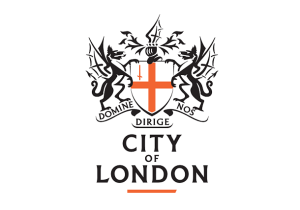At TreesUK, we know a thing or two about tree surgeons. But what does a tree surgeon do? What’s involved in training? And how can you train to be one? Our Bromley tree surgeons cover all those things – and more – in this guide.
So, what’s a tree surgeon?
Also known as an arborist or arborealist, a tree surgeon essentially takes care of tree maintenance – whether that’s planting, felling or pruning. Beyond that, a tree surgeon also cares for the health of a tree, such as dealing with pests, rot and disease.
Why is a tree surgeon important?
While it’s true you can plant trees yourself – and even care for them in terms of pruning, feeding and watering – sometimes, an expert is needed. For example, you might be planting several trees at a time, or they might be large in size. Additionally, employing an arborealist is essential when felling a tree. Wood is extremely heavy, and without careful cutting, could fall unexpectedly and cause damage or injury. Our Bromley tree surgeons pride themselves on the job.
What does a tree surgeon do?

Day-to-day tasks vary, whether it’s pruning a tree that’s got out of hand, clearing fallen trees from roads or footpaths, taking care of disease or broken branches, or planting new trees for conservation projects (or even in homeowners’ gardens). A typical day might include:
- Surveying and inspecting trees, for example checking for signs of pests and disease. This is especially important, because both of these issues can spread to other, healthy trees.
- Carrying out pruning or tree thinning. Pruning can help trees to grow better and stronger, as well as letting light into the surrounding area.
- Planting trees or shrubs. This might be in a private homeowner’s garden, as part of a woodland conservation project or for a public site, like a country estate.
- Designing a landscaping project. See above.
- Training and maintaining tree surgeon tools.
- Other tree maintenance. This could involve cutting off dead boughs or moving trees from footpaths.
What qualifications do I need to become a tree surgeon?
Arborealism can be a career where you’re ‘trained on the job’, but often, having a tree surgeon course under your belt can put you in good stead for employment.
- You could take a look at apprenticeships, NVQs and BTEC qualifications.
- Some tree surgeons also come into the industry having learned about forestry or forest management first, typically studying at degree level. This can be especially valuable in the sector, as you’ll have a deeper knowledge about aspects like the environment or plant sciences.
- It’s worth looking into the International Society of Arboriculture (ISA), or Arboricultural Association (AA). These can give you skills in things like climbing trees and aerial lifts.
- Some tree surgeon tools may need experience or certification to use safely and correctly.
How much is a tree surgeon paid?
It depends, but we pay our arborealists competitively, and according to their skills, knowledge and experience. If you work hard and perform well, you’ll earn a decent living from arborealism.
Do I need experience for this career?
Yes, experience always comes in handy – especially in a related area, like tree planting projects, landscaping or general tree maintenance (for example, in a garden centre). Sectors like ecology, agriculture and general horticulture can also give you transferrable skills and knowledge.
What skills will I need to become an arborealist?
Perhaps the most valuable skill of all is a positive attitude and excellent customer service, but you’ll also need experience of using and maintaining tree surgeon tools and equipment (such as chainsaws and chippers); up-to-date knowledge of the industry and plants in general; good strength and fitness; and knowledge of how to transport trees and machinery.
What else should I know about the job?

To be a tree surgeon, you don’t necessarily need to join a company – although we do frequently hire new team members, and can offer perks. Lots of people are self-employed arborists, although it’s worth noting that many start off as part of a company before striking out on their own. Self-employment can be an attractive prospect for many, as it lets you handle your own projects and schedule; gives you flexibility with working hours; and means you can negotiate your own pay. You’ll likely need to do a tree surgeon course and have qualifications to do this.
Tree surgery can be a risky job, partly due to equipment, and partly due to working at heights for much of the role. Also, you’ll need to be physically fit – and not shy of a spot of bad weather!
How do I start my career in tree surgery?
Our expert team of Bromley tree surgeons is happy to help answer your questions and queries – we’ve all been there ourselves at some point! But you can also take a look at websites like the ISA to find out more about tree surgeon courses and what’s involved.
















